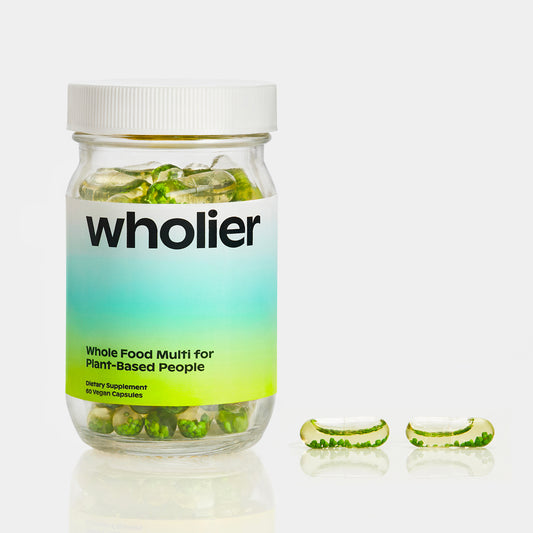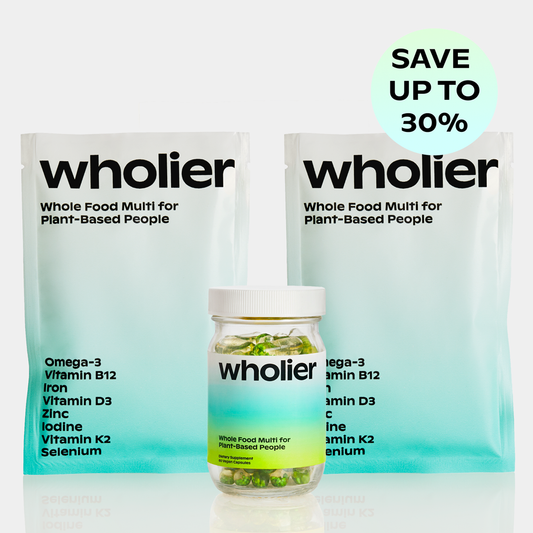
From Legumes to Nuts: Get Your Daily Dose of Zinc with These Vegan Foods
Zinc is an essential mineral that our body needs for various functions, including immune system health, wound healing, and DNA synthesis.(1) It also plays a crucial role in the growth and development of children. However, it is not produced by our body, and we need to get it through our diet. In this article, we will explore vegan foods that are rich in zinc and how much we need to consume on a daily basis.
What is Zinc?
Zinc is a mineral that is required in small amounts for several functions in the body. It is an essential nutrient that plays a vital role in maintaining a healthy immune system, wound healing, and normal growth and development during pregnancy, childhood, and adolescence. Zinc is also important for our sense of taste and smell.(2)
What Does Zinc Do?
Zinc is involved in several functions in the body, including:
- Immune System Health: Zinc helps to maintain a healthy immune system by supporting the production of cells that fight infections and diseases.(3)
- Wound Healing: Zinc is involved in the process of wound healing by supporting the growth and division of cells that repair tissues.(4)
- DNA Synthesis: Zinc plays a crucial role in DNA synthesis, which is essential for the growth and development of the body.(5)
- Growth and Development: Zinc is particularly important during pregnancy, childhood, and adolescence, as it supports growth and development.(6)
What Are the Health Benefits of Zinc?
Research has shown that consuming an adequate amount of zinc can have several benefits, including:
- Boosting Immune System: Zinc plays a crucial role in supporting the immune system, and studies have shown that individuals who consume an adequate amount of zinc are less likely to get sick.(7)
- Reducing Inflammation: Zinc has anti-inflammatory properties, and studies have shown that consuming zinc can reduce inflammation in the body.(8)
- Improving Wound Healing: Zinc helps to support wound healing, and studies have shown that individuals who consume an adequate amount of zinc heal faster from injuries.(9)
- Supporting Brain Health: Zinc is involved in several functions in the brain, and studies have shown that consuming an adequate amount of zinc can support brain health.(10)
Studies have shown that vegans and vegetarians may need to consume up to 50% more zinc in order to meet their daily needs.
How Much Zinc Do We Need?
The recommended daily intake of zinc varies depending on age and gender. According to the National Institutes of Health (NIH), the recommended daily intake of zinc is as follows:(11)
- Infants (0-6 months): 2 mg
- Infants (7-12 months): 3 mg
- Children (1-3 years): 3 mg
- Children (4-8 years): 5 mg
- Children (9-13 years): 8 mg
- Adolescents (14-18 years): 9-11 mg
- Adults (19+ years): 8-11 mg
- Pregnant women: 11-12 mg
- Breastfeeding women: 12-13 mg
It is important to note that individuals who follow a vegan or vegetarian diet may need to consume more zinc than those who consume animal products. This is because plant-based foods are high in phytates, which can bind to zinc and reduce its absorption in the body. Studies have shown that vegans and vegetarians may need to consume up to 50% more zinc than recommended to account for the reduced absorption.(12)
The best vegan sources of zinc are legumes, nuts and seeds.
What Vegan Foods Are Rich in Zinc?
Including these vegan foods rich in zinc in your diet can be a great way to boost your zinc intake:
- Legumes: Legumes, such as lentils, chickpeas, and black beans, are excellent sources of zinc. One cup of cooked lentils contains 2.5 mg of zinc, while one cup of cooked chickpeas contains 2.5 mg of zinc, and one cup of cooked black beans contains 2.8 mg of zinc.(13)
- Nuts and Seeds: Nuts and seeds, such as pumpkin seeds, hemp seeds, cashews, and almonds, are also high in zinc. One ounce of pumpkin seeds contains 2.2 mg of zinc, while one ounce of hemp seeds contains 2.5 mg of zinc, one ounce of cashews contains 1.6 mg of zinc, and one ounce of almonds contains 0.9 mg of zinc.(14)
- Whole Grains: Whole grains, such as quinoa, brown rice, and oats, are good sources of zinc. One cup of cooked quinoa contains 1.2 mg of zinc, while one cup of cooked brown rice contains 1.2 mg of zinc, and one cup of cooked oats contains 1.1 mg of zinc.(15)
- Tofu: Tofu is a good source of zinc, with 3.5 ounces of tofu containing 1.1 mg of zinc.(16)
- Vegetables: Some vegetables, such as mushrooms, spinach, and broccoli, contain small amounts of zinc. One cup of cooked mushrooms contains 1.4 mg of zinc, while one cup of cooked spinach contains 1.4 mg of zinc, and one cup of cooked broccoli contains 0.6 mg of zinc.(17)
Supplementing with Zinc
While consuming a varied and balanced diet rich in zinc is the best way to meet your daily zinc needs, supplementation can also help support your daily zinc intake. Zinc supplements are available in various forms, including zinc gluconate, zinc citrate, and zinc picolinate. It is important not to consume more than the recommended dose, as excessive zinc intake can lead to toxicity.(18)
Zinc is an essential mineral that plays a vital role in various functions in the body, including immune system health, wound healing, and DNA synthesis. Vegans and vegetarians may need to consume more zinc than recommended to account for the reduced absorption from plant-based foods. Legumes, nuts and seeds, whole grains, tofu, and some vegetables are excellent vegan sources of zinc. If you are not able to consume enough zinc through your diet, supplementation can help support your daily zinc intake.
Sources:
(1) National Institutes of Health, Office of Dietary Supplements. "Zinc." ^1 https://ods.od.nih.gov/factsheets/Zinc-HealthProfessional/.
(2) Ibid.
(3) Gammoh, N. Z., & Rink, L. "Zinc in infection and inflammation." ^4 Nutrients 9, no. 6 (2017): 624.
(4) Plum, L. M., Rink, L., & Haase, H. "The essential toxin: Impact of zinc on human health." ^6 International Journal of Environmental Research and Public Health 7, no. 4 (2010): 1342-1365.
(5) Roohani, N., Hurrell, R., Kelishadi, R., & Schulin, R. "Zinc and its importance for human health: An integrative review." ^3 Journal of Research in Medical Sciences 18, no. 2 (2013): 144-157.
(6-7) Ibid.
(8) Foster, M., Samman, S. " Zinc and regulation of inflammatory cytokines: Implications for cardiometabolic disease." ^5 Nutrients 6, no. 1 (2014): 295-309.
(9) Roohani, N., Hurrell, R., Kelishadi, R., & Schulin, R. "Zinc and its importance for human health: An integrative review." ^3 Journal of Research in Medical Sciences 18, no. 2 (2013): 144-157.
(10) Ibid.
(11) National Institutes of Health, Office of Dietary Supplements. "Zinc." ^1 https://ods.od.nih.gov/factsheets/Zinc-HealthProfessional/.
(12) Toshniwal, M. E., & Sivakumar, B. "Zinc status in vegetarians and vegans: A review of the literature." ^2 Journal of Trace Elements in Medicine and Biology 53 (2019): 10-17.
(13-17) Ibid.
(18) National Institutes of Health, Office of Dietary Supplements. "Zinc." ^1 https://ods.od.nih.gov/factsheets/Zinc-HealthProfessional/.





